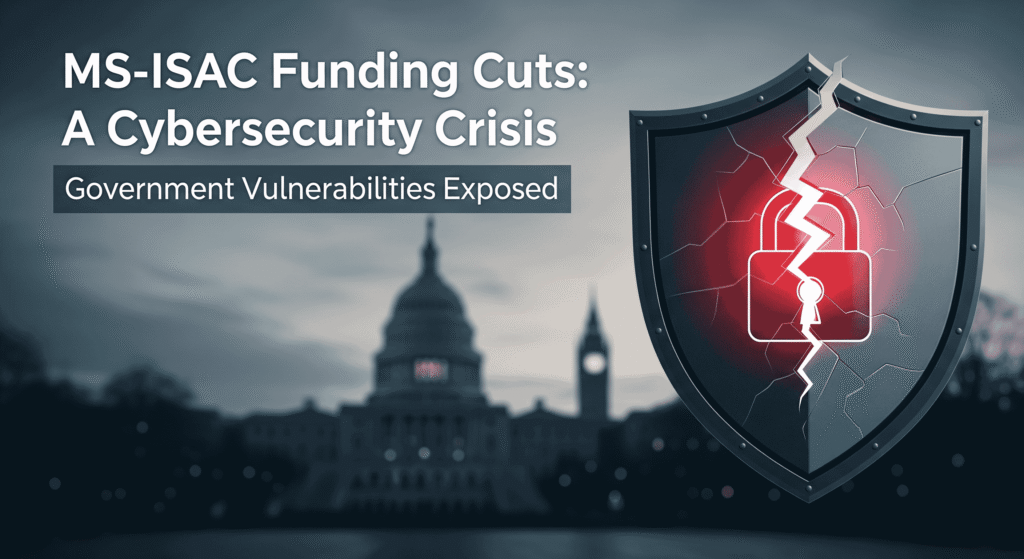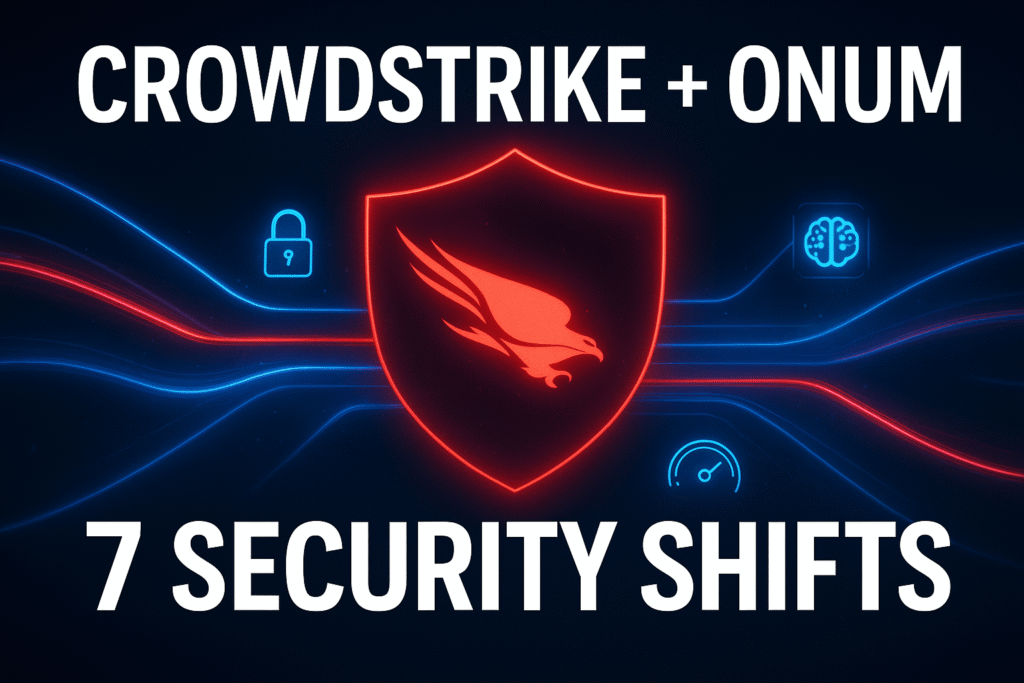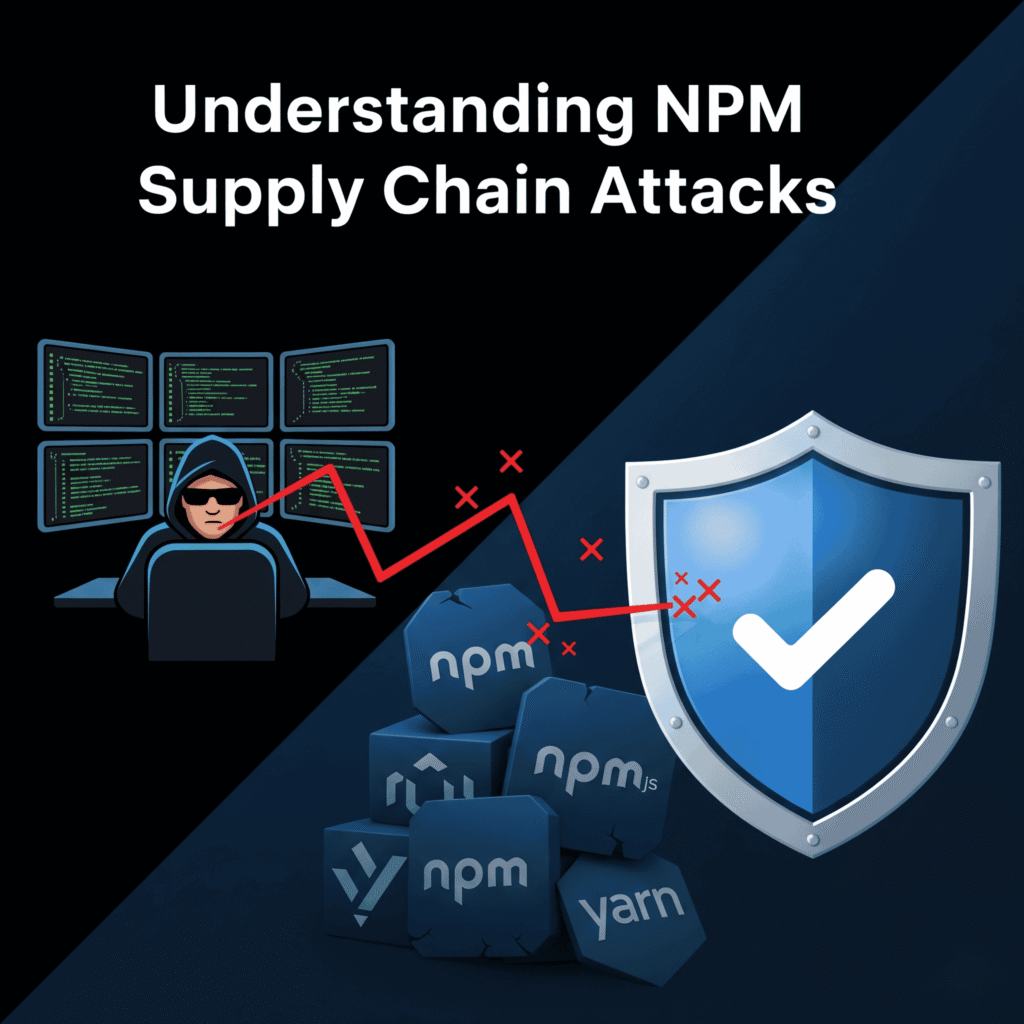When you typed ‘MS-ISAC funding cuts impact government cybersecurity’ into Google at 1 a.m., you weren’t hunting for fluff—you needed answers fast. I’ve been there, staring at budget spreadsheets and wondering how your government entity will maintain cybersecurity protection when federal support gets slashed.
The recent MS-ISAC funding cuts impact government cybersecurity in ways that ripple through every level of local and state government. With 19,000 government entities suddenly facing reduced cybersecurity support, you’re probably asking yourself: “What does this mean for my organization, and how do I keep our systems secure?”
The Bottom Line: How MS-ISAC Funding Cuts Impact Government Cybersecurity

MS-ISAC funding cuts impact government cybersecurity by reducing threat intelligence, incident response capabilities, and security awareness training for thousands of government organizations nationwide. The Multi-State Information Sharing and Analysis Center serves as the focal point for cyber threat prevention, protection, response and recovery for U.S. State, Local, Territorial, and Tribal governments through its 24/7 Security Operations Center, but now faces budget constraints that directly affect your organization’s ability to defend against cyber threats.
The 7 Most Critical MS-ISAC Funding Cuts Impact Government Cybersecurity Issues
- Multi-State Information Sharing and Analysis Center services: MS-ISAC provides 24/7 cyber threat monitoring, incident response, and vulnerability assessments that many smaller governments can’t afford independently.
- Government cybersecurity threats are escalating: Ransomware attacks on municipalities increased 50% in 2024, making this funding reduction particularly dangerous timing.
- Local government cyber protection gaps: Without MS-ISAC support, smaller entities lack the resources to implement enterprise-level security monitoring and threat detection.
- Federal cybersecurity funding reduction: The cuts affect not just direct services but also training programs, threat intelligence sharing, and coordinated response efforts.
- Municipal IT security challenges multiply: Budget-constrained local governments now face the choice between essential services and cybersecurity investments.
- Risk assessment becomes critical: Organizations must immediately evaluate their current security posture and identify vulnerabilities that MS-ISAC previously helped monitor.
- Alternative security solutions: Private sector partnerships, state-level initiatives, and regional cooperation become essential for maintaining protection levels.
How MS-ISAC Funding Cuts Impact Government Cybersecurity Operations
The MS-ISAC funding cuts impact government cybersecurity in your daily operations more than you might realize. Your organization likely depends on MS-ISAC for threat alerts, security bulletins, and incident response coordination. Without this support from the focal point for cyber threat prevention, protection, response and recovery for U.S. State, Local, Territorial, and Tribal (SLTT) governments (via cisecurity.org), you’ll need to source threat intelligence independently, potentially missing critical warnings about emerging attacks targeting government systems.
Your IT team will face increased pressure to monitor networks, assess vulnerabilities, and respond to incidents without the backup support they’ve grown accustomed to. Government cybersecurity threats won’t pause while you figure out alternative solutions, and cybercriminals often target organizations during transition periods when defenses may be weakened.
Your Action Plan: Mitigating MS-ISAC Funding Cuts Impact Government Cybersecurity
- Conduct an immediate security audit: Document all current MS-ISAC services your organization uses, from threat monitoring to training programs, and assess which capabilities you’ll need to replace first.
- Explore state and regional partnerships: Many states are developing alternative cybersecurity support networks. Contact your state CIO office or emergency management agency about available programs.
- Investigate private sector solutions: Research managed security service providers (MSSPs) that specialize in government clients and can offer threat monitoring, incident response, and compliance support.
- Strengthen internal capabilities: Invest in cybersecurity training for your IT staff and consider pursuing certifications that will help them handle responsibilities previously supported by MS-ISAC.
- Implement enhanced backup and recovery: With reduced external support, your organization’s ability to recover from attacks becomes even more critical.
- Establish mutual aid agreements: Partner with neighboring jurisdictions to share cybersecurity resources, threat intelligence, and incident response capabilities.
- Budget for cybersecurity investments: Present leadership with realistic cost projections for replacing MS-ISAC services and emphasize the financial risk of inadequate protection.
Frequently Asked Questions About MS-ISAC Funding Cuts Impact Government Cybersecurity
What is MS-ISAC and how do funding cuts impact government cybersecurity?
MS-ISAC (Multi-State Information Sharing and Analysis Center) is a federal program that provides cybersecurity services to state, local, tribal, and territorial governments. MS-ISAC funding cuts impact government cybersecurity by reducing access to enterprise-level threat monitoring, vulnerability assessments, and incident response support that smaller organizations depend on for protection.
How will MS-ISAC funding cuts impact government cybersecurity for small entities?
Small governments will lose access to 24/7 security operations center monitoring and MS-ISAC funding cuts impact government cybersecurity protection they couldn’t otherwise afford. Municipal IT security challenges will intensify as these organizations must now source protection independently or face increased vulnerability to cyber attacks.
What alternatives exist when MS-ISAC funding cuts impact government cybersecurity?
Options include state-sponsored cybersecurity programs, regional cooperative agreements, managed security service providers specializing in government clients, and mutual aid partnerships with other jurisdictions. Many states are developing alternative programs to address how MS-ISAC funding cuts impact government cybersecurity protection gaps.
Moving Forward Despite MS-ISAC Funding Cuts Impact Government Cybersecurity
The MS-ISAC funding cuts impact government cybersecurity landscape significantly, but your organization doesn’t have to face these challenges alone. By taking proactive steps now, you can maintain strong cybersecurity defenses even with reduced federal support.
Remember that cybersecurity is an investment in your community’s trust and your organization’s continuity. While the transition away from heavy MS-ISAC dependence requires effort and resources, it also presents an opportunity to build more resilient, locally-controlled cybersecurity capabilities.
The key is acting quickly and strategically. MS-ISAC funding cuts impact government cybersecurity threats won’t wait for you to adapt, but with proper planning and the right partnerships, your organization can emerge from this transition stronger and more self-reliant than before.
Start with your immediate security audit, reach out to state and regional partners, and begin building the cybersecurity foundation your organization needs to thrive in this new landscape. Your community depends on the services you provide—and those services depend on keeping your systems secure.
To read more article related to cybersecurity click here




